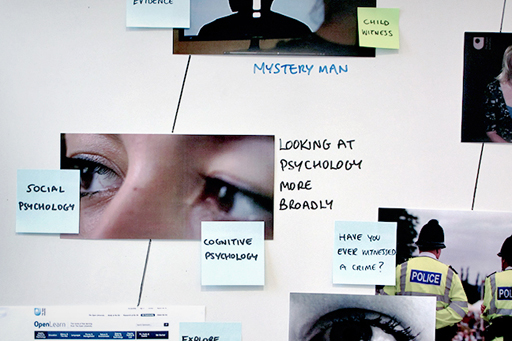2 Looking at psychology more broadly

In the final part of this course, you’ll look at psychology more broadly, the role of national psychological societies and the courses in psychology that are available at The Open University.
Eyewitness memory is just one part of forensic psychology, which also includes areas such as offender rehabilitation and understanding criminal behaviour. Before specialising in forensic psychology, it is first necessary to gain a good understanding of psychology more broadly and most researchers and practitioners do this by completing an undergraduate degree in psychology.
One reason this is an important first step, is that forensic psychology builds on knowledge gained from the many sub-disciplines of psychology, including:
- cognitive psychology – the study of mental processes (such as memory and attention)
- social psychology – the psychology of social interactions and the influence that these can have on an individual
- developmental psychology – understanding how and why our brains and behaviour change over the course of our lifespans, from young children to senior citizens
- clinical psychology – which is concerned with understanding, assessing and treating mental illness and behavioural problems.
Hopefully, you can see that all of the above represent important knowledge to have when trying to understand eyewitness memory and identification. In addition, an undergraduate degree in psychology also provides an understanding of how to conduct and understand research in psychology, which is another vital component of working as a forensic psychologist.
